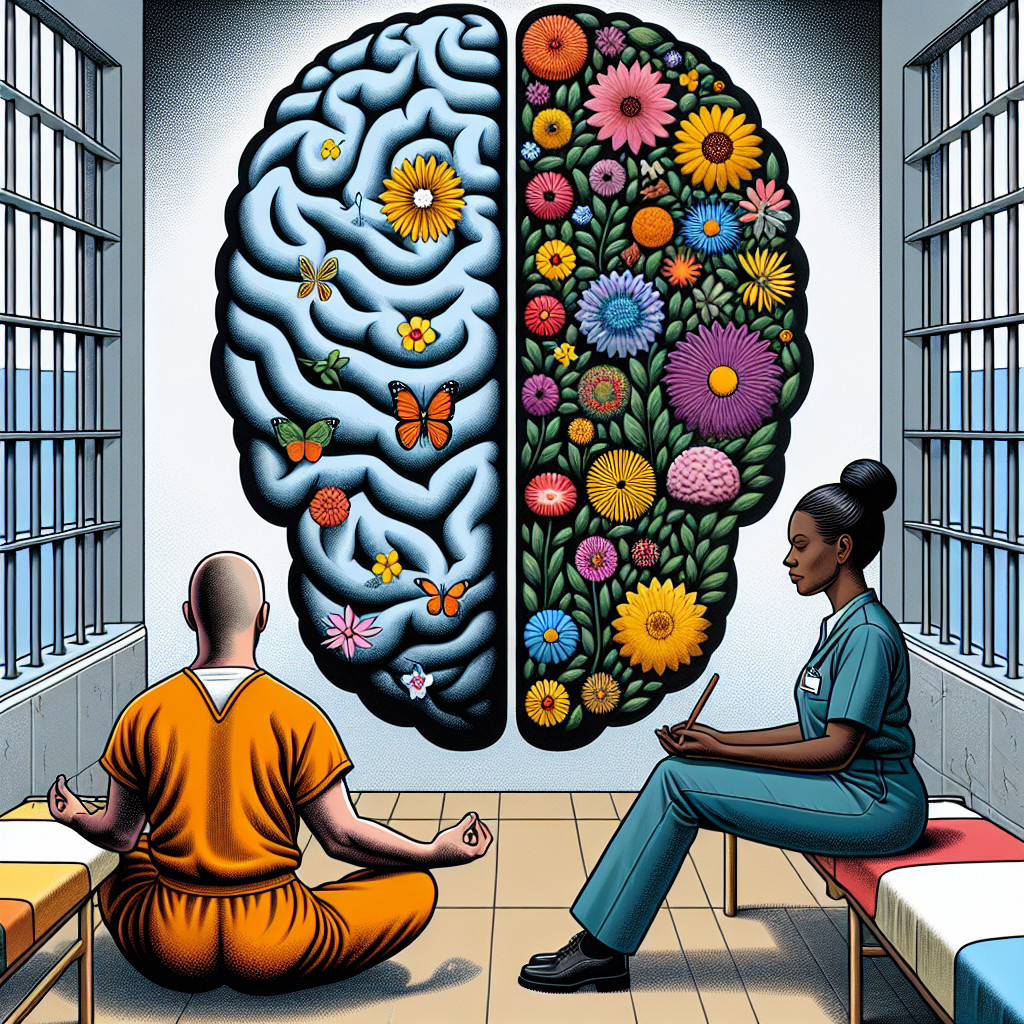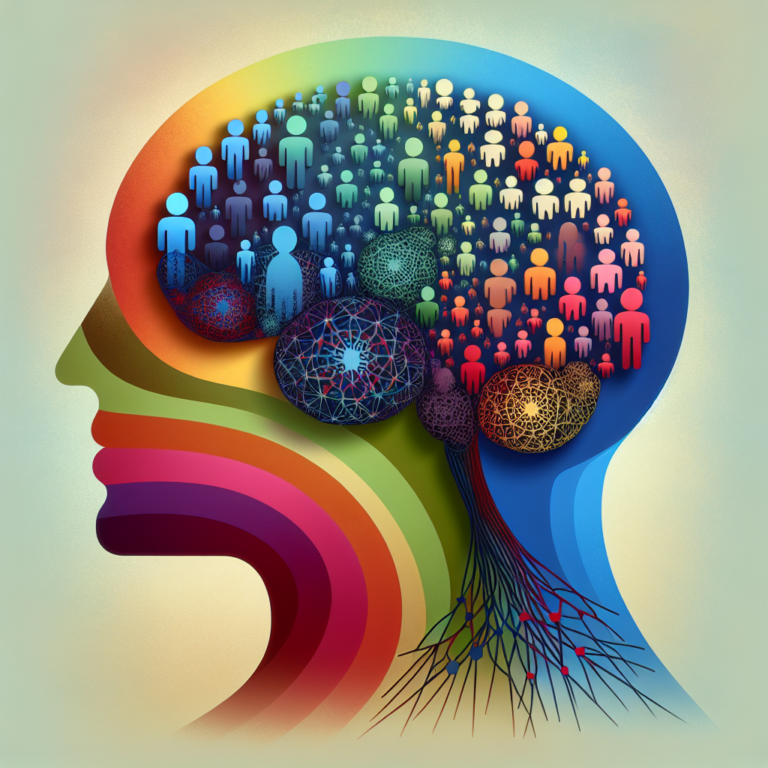
Introduction
Imagine a world where individuals in correctional facilities are not only held accountable for their actions but are also given the mental health support they desperately need. The stark realities of mental illness among incarcerated populations are alarming, with studies revealing that nearly 60% of inmates suffer from some form of mental health disorder. This paints a grim picture, emphasizing the need for reform in how we approach mental health in correctional settings.
As we delve deeper into the critical topic of The Importance of Mental Health Support in Correctional Facilities, we will explore how effective mental health interventions can significantly reduce recidivism rates, enhance the safety of both inmates and staff, and ultimately, lead to a healthier society.
The Current Landscape of Mental Health in Correctional Facilities
Statistics That Matter
Recent data underscores the urgent need for comprehensive mental health support in correctional facilities. According to the Bureau of Justice Statistics, approximately 1 in 3 individuals in state prisons have a mental health disorder. These alarming rates reflect a systemic failure to address mental health needs prior to incarceration, indicating that correctional facilities have become de facto mental health institutions, often ill-equipped to handle such responsibility.
| Mental Health Statistics | State Prisons | Federal Prisons | Jails |
|---|---|---|---|
| Rate of Mental Health Disorders | 35% | 23% | 44% |
| Suicide Rate | 4 times higher | 2 times higher | 3 times higher |
Exploring the Need for Mental Health Support
Why Mental Health Support is Crucial
Reducing Recidivism: Studies have shown that providing mental health treatment can lower recidivism rates significantly. A meta-analysis reported that inmates receiving mental health services were 30% less likely to re-offend.
Improving Safety and Security: Incarcerated individuals with untreated mental health disorders pose a greater risk of violence or self-harm, making it necessary to address these issues to maintain a safe environment.
- Enhancing Rehabilitation: Mental health support leads to improved coping strategies, helping inmates manage stress and trauma. This directly contributes to rehabilitation, making them more prepared for reintegration into society.
Case Studies Highlighting the Importance of Mental Health Support
Case Study 1: The Arizona Department of Corrections
In 2018, the Arizona Department of Corrections implemented a Mental Health Unit designed specifically for inmates with severe mental health issues. This unit provided intensive therapeutic interventions and individualized treatment plans. As a result, the department reported a 25% decrease in violent incidents within the facility and a notable improvement in inmate behavior.
Analysis: This case illustrates how targeted mental health support not only improves the experiences of incarcerated individuals but also enhances the overall safety of correctional facilities.
Case Study 2: The New York City Jail Project
The New York City Jail Project in Rikers Island focused on creating a robust mental health framework. By investing in trained mental health professionals and teletherapy options, they provided timely interventions and support. Reports indicated a 35% reduction in self-harm incidents among inmates after the implementation.
Analysis: This project emphasizes the importance of comprehensive mental health care in reducing instances of self-harm, showcasing that timely intervention can lead to life-saving changes.
Overcoming Barriers to Effective Mental Health Support
Challenges Faced
While the data supports the importance of mental health support in correctional facilities, several barriers hinder effective implementation:
Stigmatization: Many inmates are reluctant to seek help due to stigma, fearing judgment from peers or staff.
Funding Limitations: Correctional facilities often operate with tight budgets, leading to inadequate mental health resources.
- Inadequate Training for Staff: Many correctional officers lack training to deal with mental health issues, further complicating efforts to provide necessary support.
Strategies for Improving Mental Health Support
Comprehensive Mental Health Programs
To enhance mental health support, correctional facilities should adopt:
Screening and Assessment: Conducting thorough mental health assessments during intake to identify individuals needing support immediately.
Training Programs: Providing training for correctional staff on recognizing and managing mental health issues can create a more supportive environment.
- Peer Support Programs: Implementing programs where inmates who have successfully navigated mental health treatment can guide others through the process can increase engagement.
The Role of Technology in Mental Health Support
Innovative Solutions
The importance of mental health support in correctional facilities is further amplified by technology. Teletherapy has emerged as a promising solution, especially in remote areas. Here’s how technology can make a difference:
Teletherapy Access: Providing inmates with remote access to licensed mental health professionals can bridge the gap in services.
Mental Health Apps: Utilizing apps designed for mood tracking and coping skills can empower inmates to take charge of their mental health.
- Data-Driven Approaches: Utilizing data analytics can help identify trends in mental health issues among the incarcerated population, allowing for tailored interventions.
Conclusion
The conversation around The Importance of Mental Health Support in Correctional Facilities is not just a matter of policy—it’s a call to action. Correctional facilities must transform how they approach mental health, shifting from punitive measures to supportive frameworks that prioritize rehabilitation. In doing so, we can break the cycle of incarceration, reduce recidivism, and foster healthier communities.
FAQs
What percentage of inmates suffer from mental health disorders?
- Approximately 60% of individuals in correctional facilities suffer from some form of mental health disorder.
How does mental health support reduce recidivism?
- Effective mental health treatment equips inmates with coping skills and resources, reducing the likelihood of re-offending.
What are innovative ways to deliver mental health care in prisons?
- Teletherapy, mobile health applications, and comprehensive mental health assessments are some innovative solutions gaining traction.
What barriers hinder mental health support in correctional facilities?
- Stigmatization, funding limitations, and insufficient staff training are significant barriers to effective mental health support.
- How can correctional facilities implement a successful mental health program?
- Successful programs typically include thorough screening, staff training, peer support initiatives, and leveraging technology for innovative solutions.
By focusing on the Importance of Mental Health Support in Correctional Facilities, we can foster a paradigm shift that promotes healing and reintegration, ultimately benefiting society as a whole. In the end, addressing mental health is not just a moral imperative but a practical necessity for a safer, healthier future.















